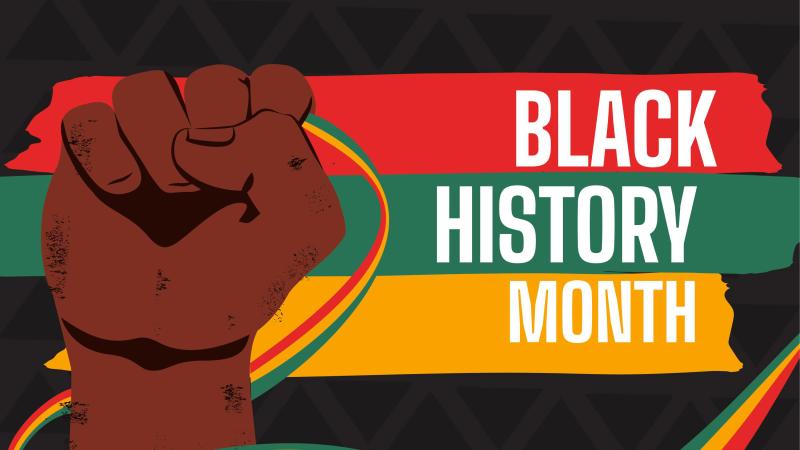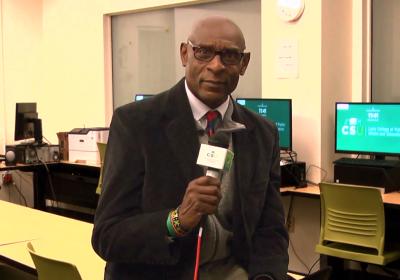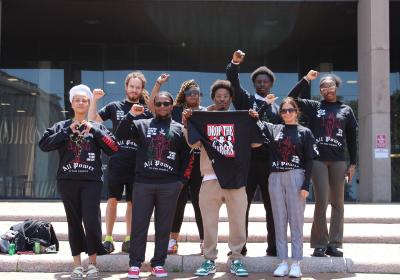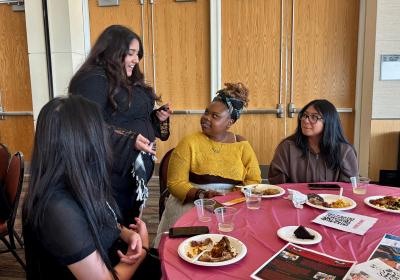
What is Black History Month and why do we celebrate it?
Black History Month 2023 opened Feb. 1 at Cleveland State University, recognizing Black History and amplifying Black voices with the theme of "Black Resistance."
Students, staff and faculty at CSU can take part in activities and events being held on campus throughout the month of February (see below for a partial list).
The origins of Black History Month
Black History Month as a national celebration every February started in 1976 when President Gerald Ford instituted the tradition.
“We can seize the opportunity to honor the too-often neglected accomplishments of Black Americans in every area of endeavor throughout our history,” Ford said in his message on the observance of Black History Month.
But the movement to honor Black contributions to the founding, development and success of this country has a much longer history, a history that confronts and defies the racism that continues to define the United States in so many ways.
The origins of what Ford recognized decades later as Black History Month can be traced to September 1915 when historian Carter G. Woodson, Ph.D. and Rev. Jesse E. Moorland founded the Association for the Study of Negro Life and History (ASNLH), known today as the Association for the Study of African American Life and History (ASALH). The organization sponsored a Negro History Week in 1926 on the second week of February – which marked the birthdays of both activist Frederick Douglass and President Abraham Lincoln – encouraging schools, colleges and communities to teach and celebrate Black history and achievements.

Carter G. Woodson, Ph.D., left, and Rev. Jesse Moorland (credit: African American Registry®)
Before it was embraced by the public, schools started recognizing Negro History Week by incorporating it into their curriculum and Woodson soon began providing themes and teaching materials for the week-long celebrations.
As more and more people began to recognize it, what started as a week-long celebration eventually grew into the month-long one we know today. While it was not yet officially celebrated on a national level, the first recorded official month-long celebration of Black History was at Ohio's Kent State University in February 1970.
Then, on Feb. 10, 1976, President Ford recognized February as Black History Month.
Ten years later, in 1986, Congress passed Public Law 99-244, which officially designated February as National Black History Month. President Ronald Reagan expanded on the purpose of Black History Month with Proclamation 5443, stating that the “foremost purpose of Black History Month is to make all Americans aware of this struggle for freedom and equal opportunity.”
The United States isn’t the only country that celebrates Black History Month. The Canadian government recognized February as Black History Month in 1995 and the United Kingdom has celebrated October as Black History Month since 1987.
Since 1976, the ASALH has chosen a theme to commemorate each Black History Month. In 1976, the theme was “America for All Americans” and some past themes include “Black Business” in 1998 and “Black Women in American Culture and History” in 2012.
The theme for Black History Month 2023 is “Black Resistance.”
It honors Rev. Henry Highland Garnett, a former slave and revered abolitionist, who began the closing portion of his speech at the National Negro Convention in 1843 with the quote that inspired this year’s theme:
“Let your motto be resistance! Resistance! Resistance! No oppressed people have ever secured their liberty without resistance.”
CSU celebrates Black Resistance
CSU is hosting numerous events that celebrate Black History Month. They include:
- “Love and Unity” which will run from 10. a.m. to 2 p.m. on Tuesday, Feb. 14 in the Student Center Atrium. The event will feature a DJ, food and discussions about Black love and American hip-hop.
- Students can attend a mixer in the Diamond Room at the City Club on Tuesday, Feb. 14, from 4 p.m. to 6 p.m. The social event is free, but an RSVP is required. Reservations can be made by calling 216-687-9394.
- “Black History Trivia and Board Games” on Thursday, Feb. 16 starts at 11 a.m. in the Howard A. Mims African American Cultural Center, Berkman Hall room 137.
- “Duty of Defiance – Movement Lawyering in the Era of Dobbs” will be held Feb. 16 in the CSU College of Law’s Moot Court Room at 5 p.m. The discussion will focus on movement lawyering with an emphasis on the ongoing abortion crisis and how it will disproportionately affect women of color.
- “Project 400 Conference: Our Bodies, Our Minds, Our Communities – Physical, Emotional, and Environmental Impacts of Racism,” a conference that will discuss contemporary challenges faced by African Americans, will be held in the Roberta Steinbacher Atrium in the Levin College of Public Affairs and Education and via Zoom on Friday, Feb. 24 and Saturday, Feb. 25. A $10 registration fee is required, and more info can be found on CSU’s website.
- CSU’s Viking Food Co. has been celebrating and will continue to celebrate Black culinary excellence by featuring its Black culinary experts.
For information on Black History Month events happening off campus, students can visit ThisIsCleveland.com.
















